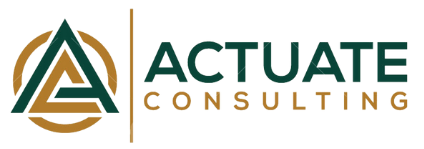Why Leaders Must Address Poor Performance Immediately
Jason prided himself on being a nice leader. He believed in giving his team space, trusting they would figure things out on their own. When an employee underperformed, he assumed it was just a phase and hoped things would improve.
But they didn’t.
One of his best employees, Rachel, started missing deadlines. Her reports became sloppy, and her once-positive attitude turned indifferent. Instead of addressing it, Jason told himself, She’s probably going through something. I don’t want to seem too harsh.
Then, things spiraled.
Other employees began noticing the lack of accountability. If Rachel could get away with poor work, why should they put in extra effort? Productivity dropped, resentment grew, and team morale suffered. The final blow came when a client complained about a costly mistake in one of Rachel’s reports.
Jason’s boss called him in. “Why wasn’t this caught earlier?”
Jason had no answer. He realized avoiding the issue didn’t make it disappear—it made it worse.
The Leadership Shift: Learning to Give Constructive Feedback
Determined to change, Jason attended leadership training on constructive feedback and accountability. Here’s what he learned:
🚨 Avoiding feedback isn’t kindness—it’s negligence.
🚨 Employees need clarity, not silence.
🚨 Addressing poor performance early prevents bigger issues later.
The training provided Jason with a simple framework for effective feedback:
✔ Be Timely – Don’t wait weeks or months; address issues as soon as they arise.
✔ Be Specific – Instead of saying “You need to do better,” say “Your last two reports contained critical errors. Let’s discuss how we can fix this.”
✔ Be Constructive – Frame the conversation as a growth opportunity, not punishment.

The Transformation
Jason put his training into action. Instead of staying silent, he pulled Rachel aside for a private conversation:
💡 “Rachel, I’ve noticed some inconsistencies in your recent reports, and I want to check in. Is there something affecting your work?”
Rachel admitted she had been overwhelmed and unsure how to manage her workload. Together, they created an improvement plan, including weekly check-ins and additional training support.
The result?
✅ Rachel turned her performance around – With clear expectations and support, she regained her confidence.
✅ The team regained trust in Jason – Seeing him step up as a leader reinforced accountability.
✅ The workplace culture improved – Addressing issues early led to stronger communication and higher standards.
By learning to address poor performance immediately, Jason didn’t just help Rachel—he saved his entire team from dysfunction.
Take Action: Become a Leader Who Holds People Accountable
Are you avoiding difficult conversations? Remember: Silence makes things worse. Addressing issues head-on creates clarity, growth, and a high-performance team.
👉 Start today: Identify one performance issue you’ve been avoiding and schedule a conversation to address it constructively!

Looking forward to helping you step into your full leadership potential.
Best regards,

Checree Bryant
CEO Actuate Consulting




